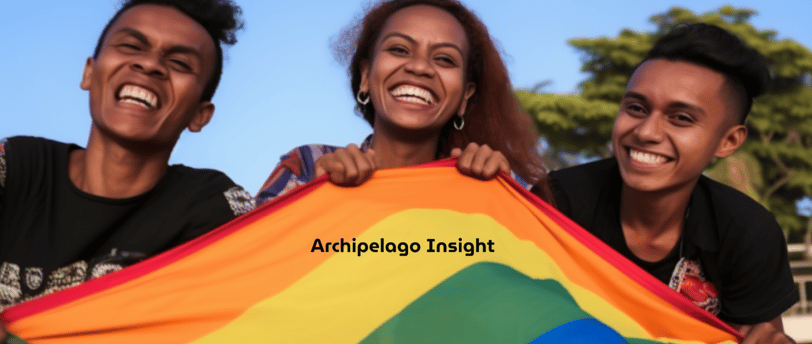A Luta Continua! : Timor Leste's Struggle Against Heteronormativity
Timor Leste's acceptance of the LGBTIQ+ community, despite being a predominantly Catholic country.
SOCIAL ISSUES
Irsyad Mohammad
9/26/20233 min read


The LGBT+ Pride Parade in Dili, Timor-Leste, stunned the globe in 2017. Pro-LGBTIQ+ activists march in a Pride Parade to demonstrate their sexual orientation and identity. Many heterosexuals take part in the Pride Parade without hiding their sexuality, and some even add to the spirit of the event and demonstrate their support for the cause.
Hundreds of people paraded through the streets of Dili City in 2017 as if they wanted to demonstrate to the world that being LGBTIQ+ is not a sexual disorder or mental illness, but rather a natural human sexual orientation. Rui Maria de Araújo, the then-Prime Minister of Timor-Leste, gave a statement of support and openly supported the Dili Pride Parade at a press conference. He stated that Timor-Leste is a country that respects human rights and embraces diversity, including diversity of sexual orientation. Likewise against discrimination against LGBTIQ+ individuals.
Many people were astonished by this action in a country where the majority of the population is Catholic and many Timorese are quite religious. Nuns, on the other hand, marched in the parade and led prayers. Before beginning their procession, the parade participants formed a cross symbol (trinity sign) and prayed according to Catholic teachings before beginning their parade. As though by default, the church did not condemn their behavior.
This episode, of course, drew international notice.
As well as the Vice.com documentary Timor Leste's Struggle Parade to Liberate LGBTIQ+, the organizers of the first Dili Pride Parade in Timor-Leste shared their experiences with the globe on the YouTube channel of renowned travel-vlogger Drew Binsky. The Dili Pride Parade's organizers recounted how they had been bullied or harassed because of their sexual orientation ever since they were young. They went through a lot, but in the end, they learned to love and accept themselves.
Timor Leste does not yet legalize same-sex marriage, but it is one of four Southeast Asian nations that have signed the UN Human Rights Council (UNHRC) Resolution on the eradication of discrimination against LBGTIQ+ people, together with the Philippines, Thailand, and Vietnam.
Armenia, Cyprus, Georgia, Japan, Mongolia, Nepal, the Philippines, South Korea, Thailand, Timor Leste, and Vietnam are among the 12 Asian countries who have signed the UNHRC document on the abolition of sexual orientation discrimination.
It is not my place to judge whether the activities of those involved in the Dili Pride Parade were correct or incorrect. Furthermore, I am not writing this to engage in a dispute about whether LGBT is right or wrong; numerous papers have been written regarding sexual orientation by religious leaders from a variety of circles and parties, ranging from the academic to the theological.
Of course, there are many people who comprehend theologically the status of LBGT people, many of whom reject it; yet, there are only a few theological grounds that support them. In academic debates, however, the status is debatable, with numerous proponents and opponents.
This article emphasizes why Timor-Leste, with its 98 percent Catholic population, is the most densely populated Catholic nation in Asia -- why do they not vehemently oppose the existence of the Dili Pride Parade? Rather than condemning, they accept. Even the Dili Pride Parade began with a recitation of the Lord's Prayer led by a nun. Only then did they begin the march; to this day, every parade begins with a prayer.
Only then did the march begin; to this day, every parade begins with a prayer.
Even though it is well-known that the Roman Catholic Church has a staunch opposition to LGBTIQ+, why is its stance in Timor-Leste generally more lenient?
Even Timor Leste's elites and the country's founding fathers support and are pleased of the existence of the Dili Pride Parade. To understand this, we can look back at the first part of Timor Leste's past, from when it got its independence from Indonesia to when it became a UN administrative area and was turned over to the independent Timor Leste Government on May 20, 2002.
--
If you want to know more about the history of Timor Leste's history please read our article "Timor Leste's Founding Fathers' Difficult Road to Retaining the National Narrative".
***
Irsyad Muhammad, 2023
